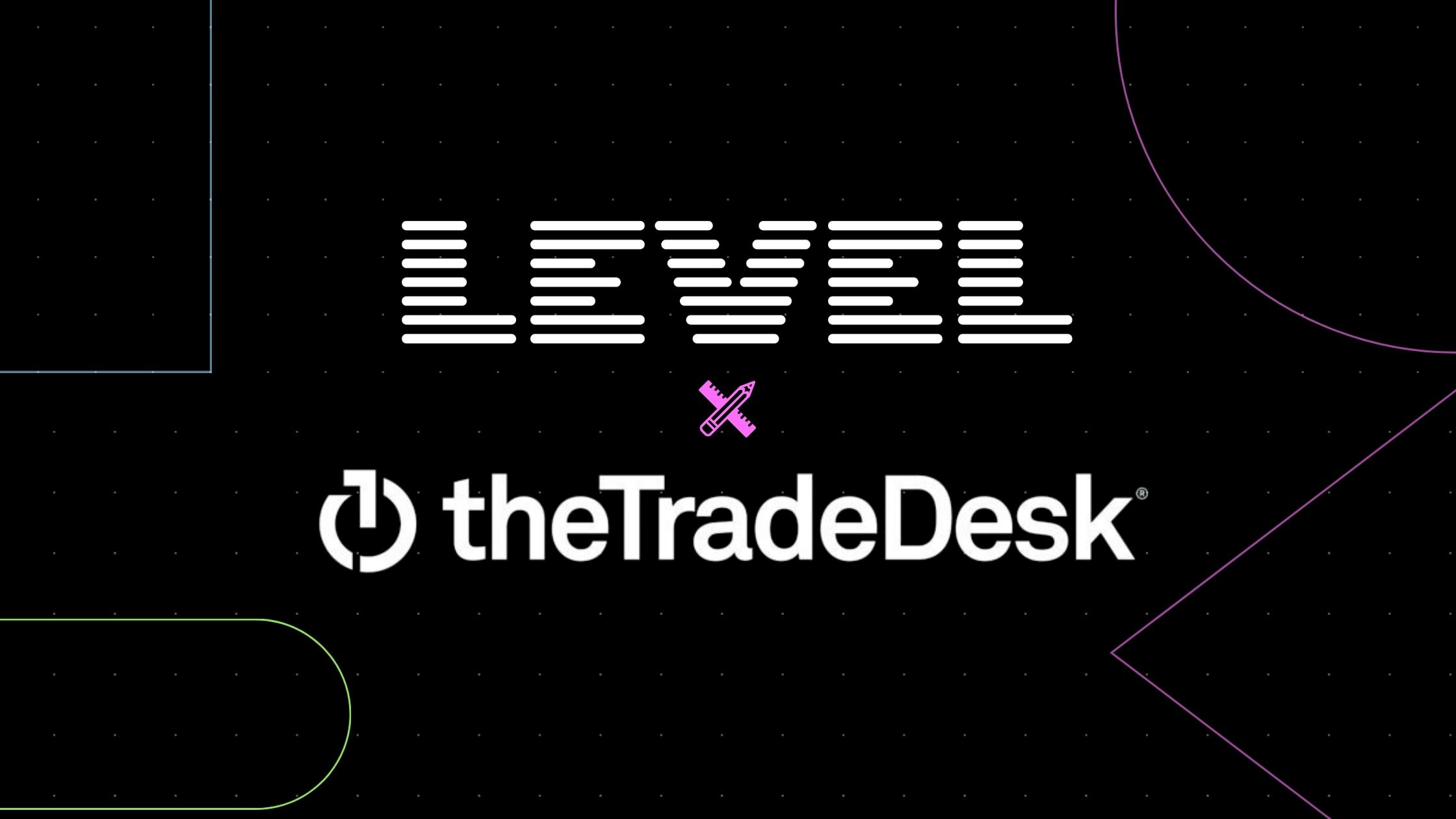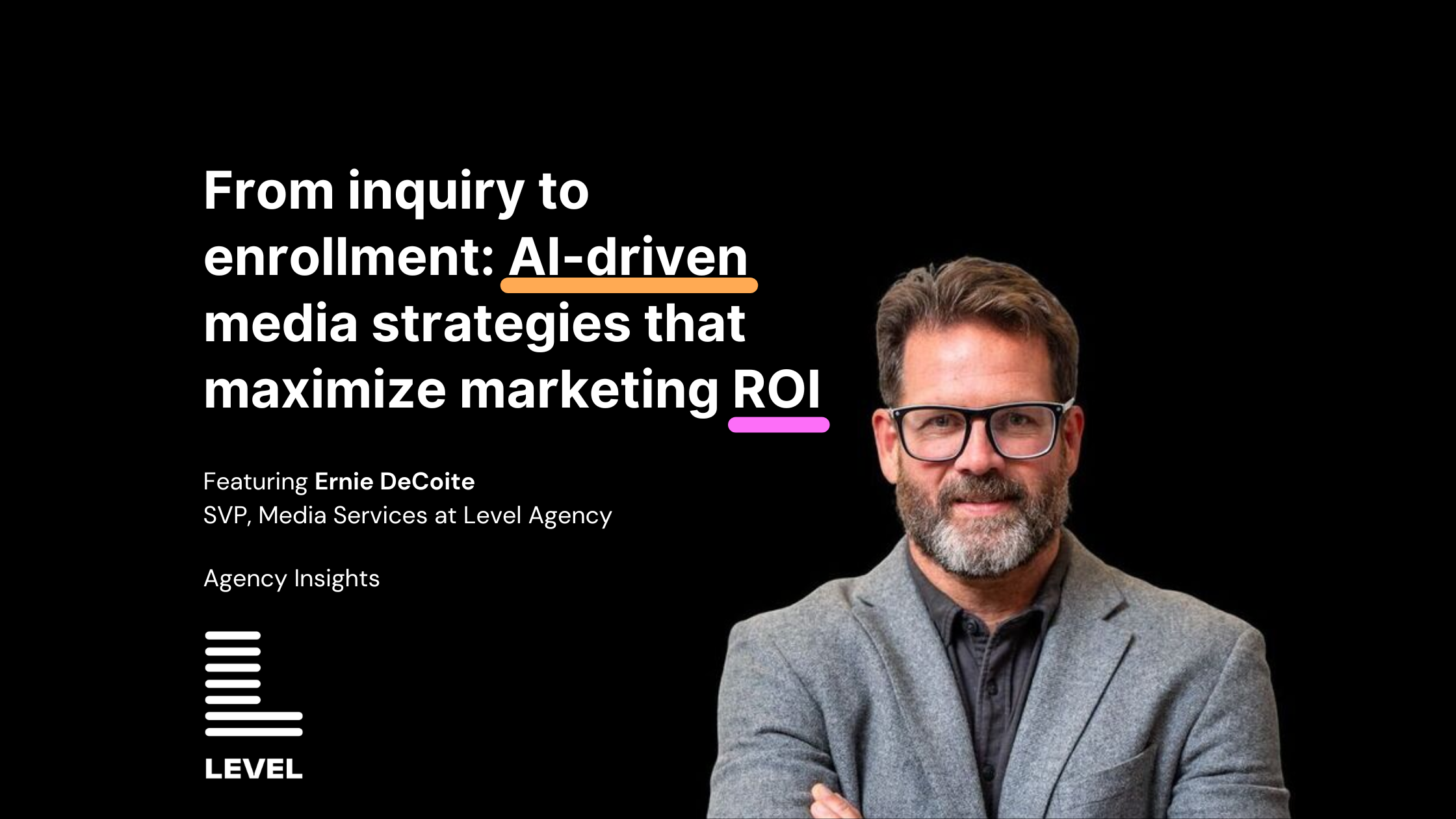Google is making big changes to search with four massive updates announced at Google I/O 2024 Keynote speech, which you can watch in this video. The advances in search that are dropping starting this week, will represent the biggest changes to how people use Google to search for information in over 15 years. These updates, including AI Overviews as part of the Google Search Generative Experience (SGE), AI-Organized Results Pages, Multi-Step Reasoning and Planning in Search, will change how we interact with Google and find things online. But what does this mean for your business and SEO as a whole? The team at Level Agency helps you get into it.
AI Overviews (formerly SGE) Live
AI Overviews, previously SGE (Search Generative Experience), are now going to show up as part of your search experience after a 65% drop in AI Overview search results over the last month as noted by Search Engine Land. These AI generated answers are showing up at the top of search results, summarizing information from multiple sources and linking to websites. Good for users, bad for businesses who are not able to appear in the AI Overview section of Google’s search results.
Google’s decision not to track AI Overview traffic separately only adds to the uncertainty. Google says people have used AI Overviews billions of times through Search Labs and it’s increased user satisfaction and engagement with search results.
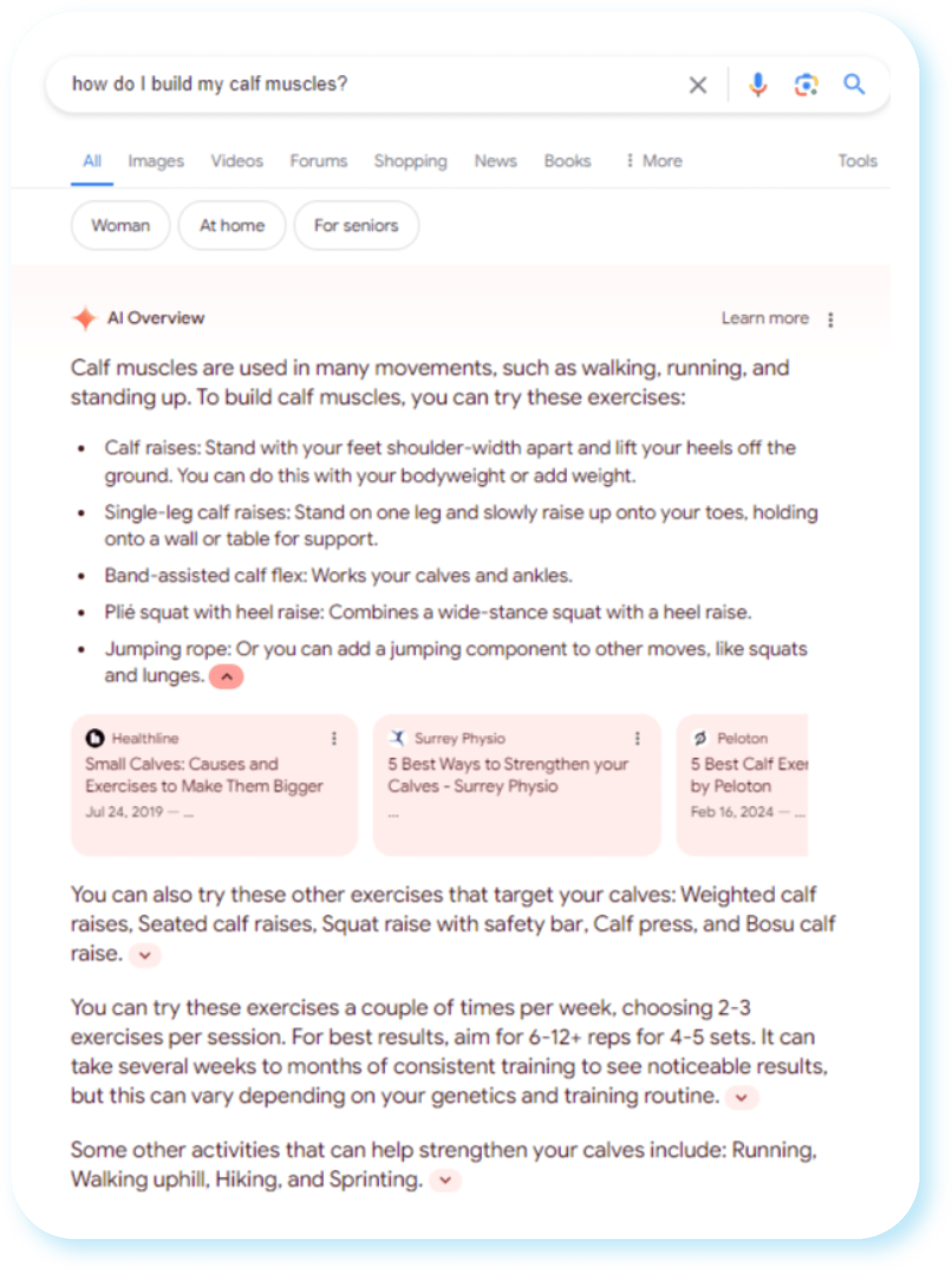
If you’re targeting a US audience, Level Agency recommends optimizing for AI Overviews. Your digital marketing agency should be actively engaging with you to explain how important it is for your business to be found in the AI Overview portion of Google’s search results. At Level Agency, we are making it our mission to educate clients on the transformative effects of AI-powered search for their business.
A great way to stay on top of the advances in search and play with new AI related product launches is in Google Labs. Google Labs allows users to test and provide feedback on Google’s early-stage products and features like the ones we are reviewing today.
AI Overview Search Engine Results Page: A More Dynamic Search Experience
Google’s AI is now reorganizing search results pages with AI-Organized Results Pages. AI generated headings are being used to categorize results into sections, creating a more dynamic but potentially messy experience. Google is testing AI overviews in the main Google Search results for users who haven’t opted into Google’s beta for AI search now that Google’s AI search product is out of beta.
Google outlined the three elements powering AI Overview search results in 2024:

- Real time information: Google states in their keynote speech that they provide real-time information with over a trillion facts about people, places, and things.
- Ranking and quality systems: Which Google has developed and honed since its inception.
- Gemini: which unlocks new agentive capabilities, right in Search. By bringing these three things together
The “how to clean fabric” example we show in the screenshot here shows how AI can tailor results but also raises questions about relevance and user intent. This is a big deal for search result presentation. Reviewing what Google is showing for specific AI searches will help your business understand what searchers are looking for when searching for your products and services.
Google AI Overview FAQ
Q: When will Google Ai Overviews be available?
A: Google Ai overviews are available right now. Although Google pulled back on how many search results included an AI overview result, while they were revamping AI powered search, that period is over and you will be able to find AI overviews for most of your questions.
Q: Are AI Overview results the same as Google SGE results?
A: Yes. Google SGE will now be known as AI Overview. We believe the name change occurred because SGE was confusing for users. No one knew what SGE meant. The name “AI Overview” is self explanatory for users.
Q: How can I get my Business included in the AI overview portion of Google’s search results?
A: Our Secret Sauce for appearing in Google AI Summary Paragraphs
Based on our reverse engineering of AI Overview results, we found a pattern: the AI pulls content from paragraphs that summarize the answer in simple sentences. By adding a simple summary paragraph at the top of one of your blog posts or opportunities to rank in the AI Carousel and dropdowns.
Actionable Steps:
- Analyze AI Overview Results: Which queries trigger AI results? Is your brand featured?
- Optimize Existing Content: Add summary paragraphs to your top ranking pages, using simple language and matching the target query. The most practical advice we can give you to appear in Google’s AI overview for a specific query is to closely review the current results featured in the AI Overview and provide a more straightforward, simple to read answer than the current results.
- Force Reindexing: Submit your updated URLs through Google Search Console so Google can reindex your page fast. Check in 12-15 hours to see if you are now included in the AI search result. If not, that means you most likely didn’t address what Google considers to be the searcher’s intent.
- Expand Your Reach: Get mentions and backlinks across various platforms to increase your chances of being recommended by the AI.
- Monitor and Adjust: Check to make sure the changes you made to your blog or webpage now appears in Google’s AI Overview for your chosen keyword

Multi-Step Reasoning: Google Does the Googling for You
Multi-step reasoning is a big deal. Powered by generative AI, Google can now break down complex queries into sub-questions, research each part and give you a summary.
Good for users, bad for websites that rely on informational content to bring in website traffic. Google is summarizing the and by getting recommended in multi-step reasoning results.
Google Multi-step reasoning FAQ
Q: How do I get Google to recommend my business to appear in multi step reasoning results
A: We recommend following the steps below
- Step 1: At Level, we recommend doing a Google search for several common questions you get from customers. Review each search result to understand what Google is looking for in terms of an answer to the question you just entered.
- Step 2: Provide step-by step answers with screenshots showing how you did it
- Step 3: We believe you need to use 1st person when writing. Using first person allows you to show expertise and experience by explaining how your company has solved this issue before. This will raise the EEAT value of your content. EEAT is Google’s acronym for its writing guidelines. EEAT stands for Experience, Expertise, Authority, and Trust. If your content can demonstrate EEAT, it is more likely to appear prominently in Google’s AI Overview result.
- Step 4: Simplify the answer. Make sure your answer has a high readability score. Use a readability tool to make sure your answer passed the readability test.
- Step 5: Completely fill out your Google Business Profile so Google has as much information as possible about your business. Maintain strong review scores, and ratings as well. Our clients often ask us what a good review score is for their Google Business Profile. We believe that a 4.7 out of 5 review score is the minimum score you want to shoot for. This score sounds high, but in our experience, Top results in Google’s map pack, have a 4.7 or better for competitive industries.
Planning in Search: Meals, Trips and More
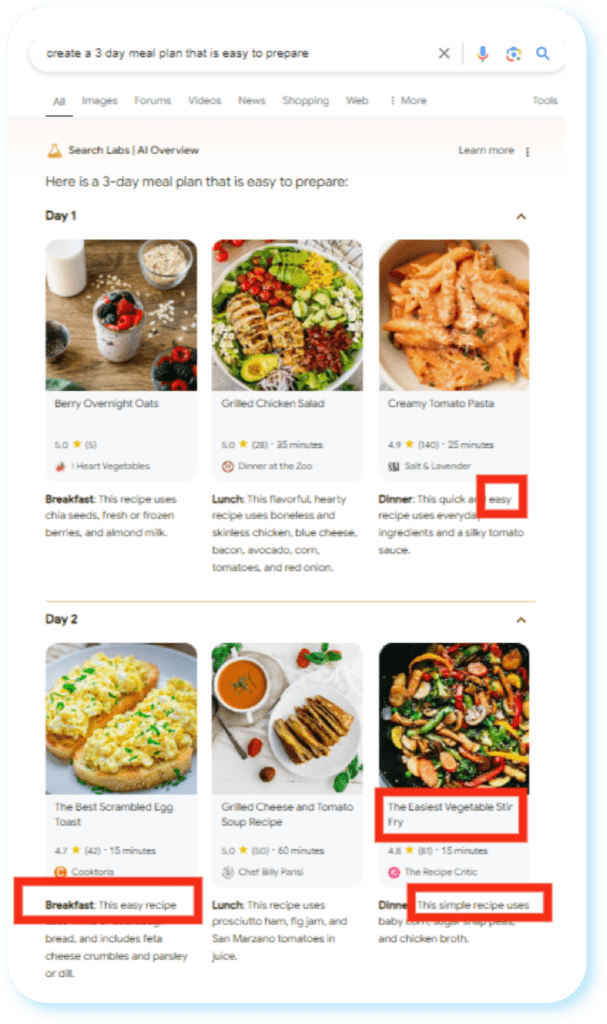
Google is getting into planning, currently offering meal and trip planning in search results through its AI search. For now this seems limited, but the bigger picture is Google wants to keep users within its ecosystem for planning activities, which could potentially impact websites that offer similar content.
This is not great news if you are a recipe site or a travel site. If your business falls into either of these categories, we recommend that you invest in updating your content aggressively to make sure your recipes appear in the AI overview.
To illustrate how planning will work, Elizabeth Reid of Google performed the following search “create a 3 day meal plan that is easy to prepare for groups”. we did a similar search, as you can see in the screenshot here, and was able to generate a meal plan as well.
Multi-step planning AI Overview FAQ
Q: How do I get my recipes to appear in the AI Overview
A: This is very situational and will be based on the question asked. My search was for a 3 day meal plan that was easy to prepare. The good news is that Google isn’t scraping recipes from cooking sites and passing them off as their own. This creates an opening for you to optimize your recipes to appear in Google’s AI Overview.
To appear for that search, I would make sure that your recipes include a cooking time. I would also add context. In your recipe, explain if this is a fast prep option compared to other similar dishes. Explain why cooks will save time and how much time they will save.
It is important to use the word “easy” (or similar words like “simple” or “fast”) in the title of your recipe or in the text of the recipe. Note in the image above, that 50% of the recipes in the screenshot included the word easy. I can’t overstate how important it is to incorporate relevant language into your recipes.
Q: What else do I need to know to make sure my recipes appear in the AI Overview?
A: It is important to understand that there are no guarantees when it comes to appearing in Google’s AI overview, but there are a number of additional optimizations you can do for your recipes that increase your chances of appearing in Google’s AI overview dramatically.
- Use High quality images: This means using hi resolution images that show off the food and make it look delicious.
- Provide step by step instructions that are easy to follow. Top recipe results include images for each step that demonstrate how each step should look. This makes the recipe easy to follow for cooks.
- Use video: We recommend using video for four reasons.
- The first reason is that your recipe can appear as a video in search results if Google determines that video results are the most appropriate.
- The second reason is that it demonstrates your expertise.
- The third reason is that it will increase the time on page for this result. Google’s document leak revealed that clicks to a page increase the rankings for that web page.
- The fourth reason is that 66% (2 out of 3) of the AI overview results featured a video. This indicates to us that Google believes users find videos useful for understanding how to follow a recipe.
- Excellent reviews: Based on our review of Google’s AI recipe results, one of the single most important ranking factors is likely to be high review scores. Middle of the road reviews scores won’t cut it. We averaged out the review scores of the 9 recipes on the AI overview result and we found that the average review score was a 4.91 out of 5. That is an insane average review score. It is important to note that 50% of the recipe results had a perfect 5.0 score and there was only 1 recipe with a score of 4.7.
The ‘Black Box’ Era of Generative AI Search Could Make Attribution Difficult
These AI changes make it harder to track conversions and understand user journeys on the search engine results page (SERP). We may see less visibility into non-branded organic search traffic in Google Analytics and more branded search, making attribution harder. The reason we believe there will be more branded traffic generated from AI Overview results is that Gemini will answer most if not all of the customer’s questions inside of the Google search. Google will then recommend options based on the searchers query and provide a recommended brand.
A holistic approach to digital marketing is key. Focus on building brand visibility and engagement even if direct attribution from organic search becomes less transparent.
Key Takeaways and Next Steps
Google’s AI advancements are reshaping how people will use search, particularly with the launch of AI Overviews (formerly SGE). To navigate this new world and ensure your business remains visible, follow these key takeaways:
- Optimize for AI Overviews:
- Analyze which queries trigger AI Overviews and assess your brand’s presence in these results.
- Add concise, easy-to-read summary paragraphs to your top-ranking pages, mirroring and expanding on the information in the current AI Overview answer.
- Force reindexing through Google Search Console after making content updates.
- Consistently monitor your rankings and refine your approach based on what works.
- Master Multi-Step Reasoning:
- Research common customer questions and understand the type of answers Google prefers.
- Provide step-by-step guides, using first-person language and screenshots to showcase your expertise.
- Simplify your answers and aim for high readability scores.
- Complete your Google Business Profile and maintain strong review scores (aim for at least 4.7 out of 5).
- Get Your Recipes Featured in AI Overviews:
- Include cooking time and emphasize ease of preparation in your recipes.
- Use high-quality images and step-by-step instructions with visuals.
- Incorporate videos to demonstrate your expertise and increase engagement.
- Strive for excellent review scores (4.9 or higher) on your recipe content.
- Embrace the “Black Box” Era:
- Shift your focus from tracking individual keyword rankings to overall brand visibility and engagement.
- Invest in building a strong online presence with mentions and backlinks across multiple platforms.
- Be prepared for increased branded search traffic and less transparency in organic search attribution.
- Adopt a holistic digital marketing approach to monitor your overall brand performance.
The Bottom Line
While the rise of AI in search presents challenges, it also opens up new avenues for businesses to connect with their audience. AI search is still in its infancy, which means your business has a unique opportunity to get the jump on your competition.
Remember, the key is to get started updating your content to provide the information that AI overviews are looking for. We recommend that businesses begin that process now to avoid losing substantial amounts of organic traffic over the next year.
If you aren’t sure where to start, contact us and we will provide you with a free AI readiness assessment.
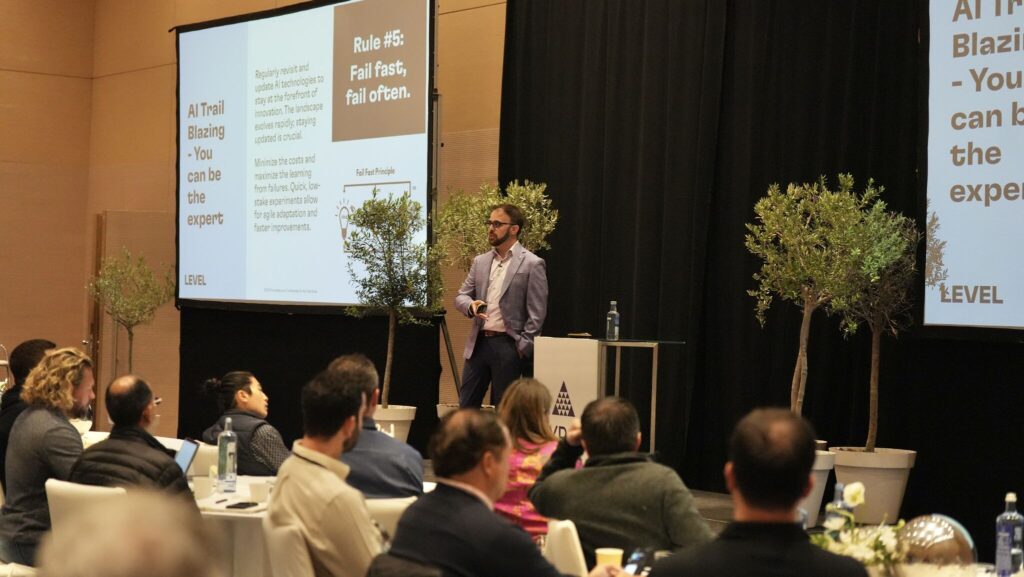
Patrick Patterson, CEO of Level Agency, stands at the forefront of digital advertising innovation, leading a team of over 200 marketers nationwide. With a background in mathematics and computer science, Patrick’s journey began at the age of 8 when he started coding, and developed early AI algorithms in 2002. His technical foundation and analytical approach to marketing have guided Level Agency to reach new heights in the digital marketing space. Patrick exemplifies transformative business leadership, steering the company through unprecedented growth and innovation achieving 4X growth in the last four years. Patrick speaks internationally on navigating the challenges and opportunities of becoming an AI emergent company.


